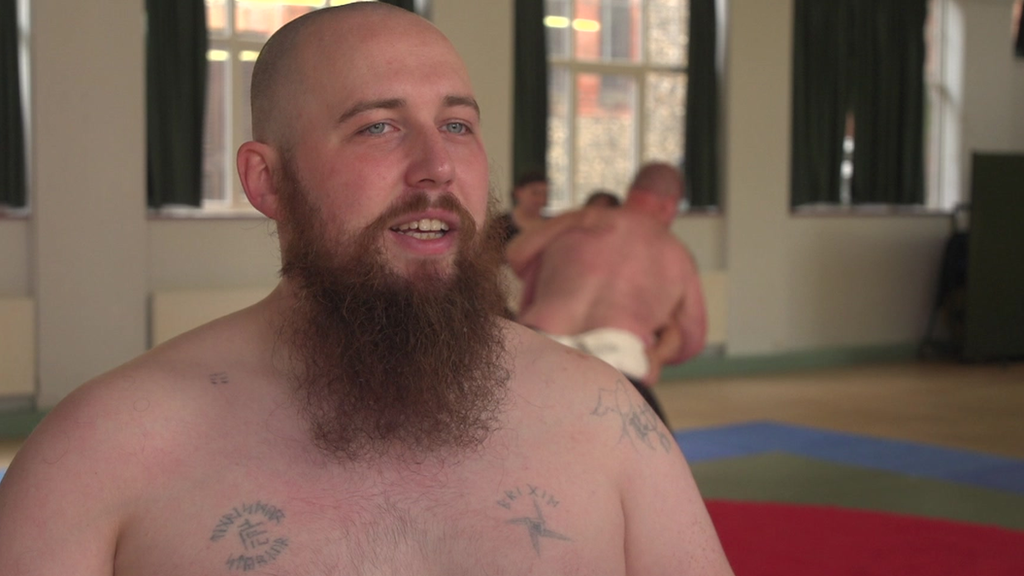Sumo Grand Tournament back in London after 34 years
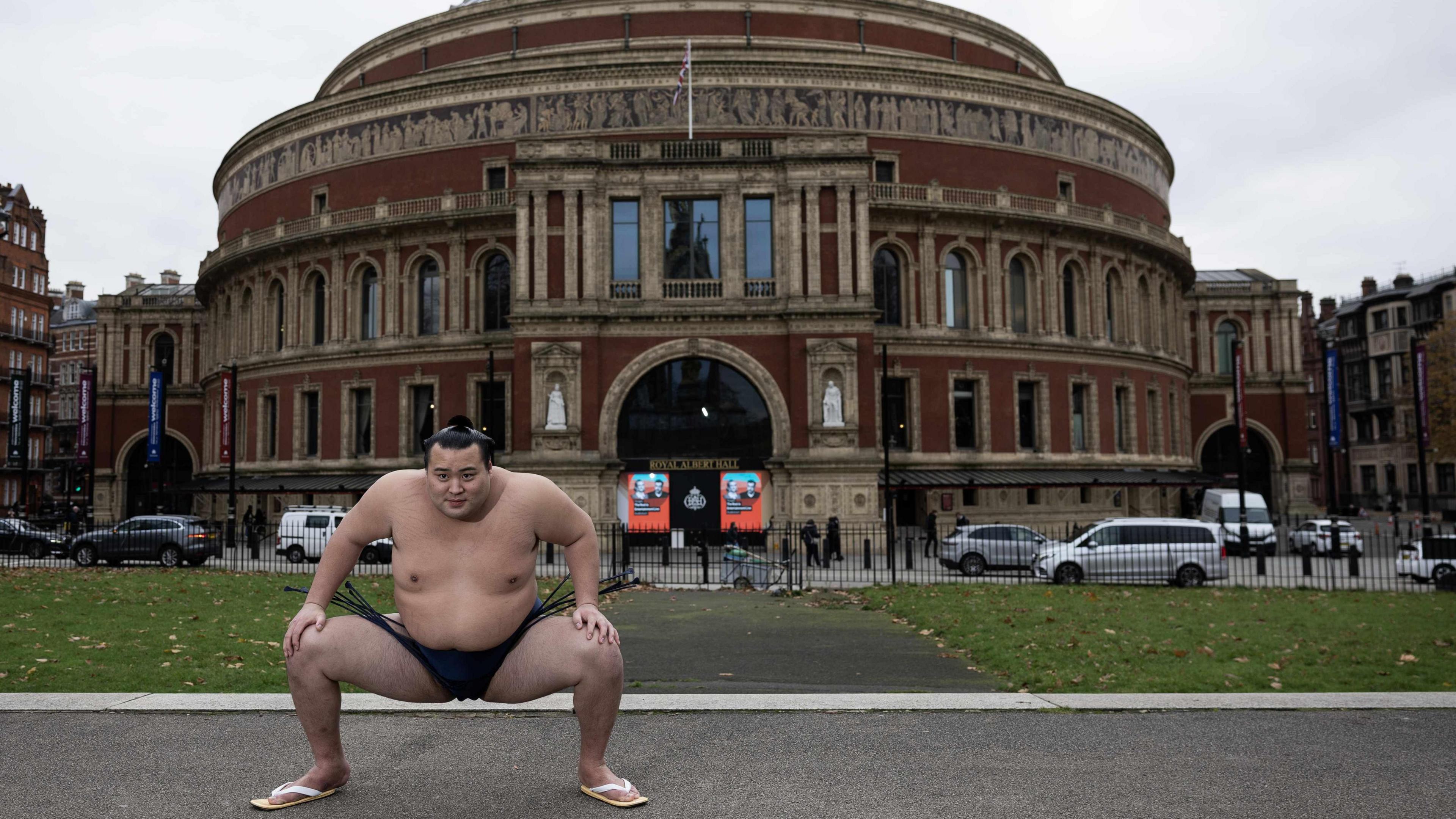
Sumo wrestler Kitanowaka Daisuke will be aiming to perform a sumo squat inside the hall next October
- Published
The Royal Albert Hall will be transformed into a "temple of sumo" as it is set to host the Grand Sumo Tournament for the second time.
Next October, more than 40 of Japan's elite rikishi - wrestlers - will compete across five days to crowned the tournament's grand champion.
The venue will be complete with an authentic soil and sand dohyō (ring) and a roof "reminiscent of a Shinto shrine".
Previously the Kensington venue hosted the tournament in 1991.
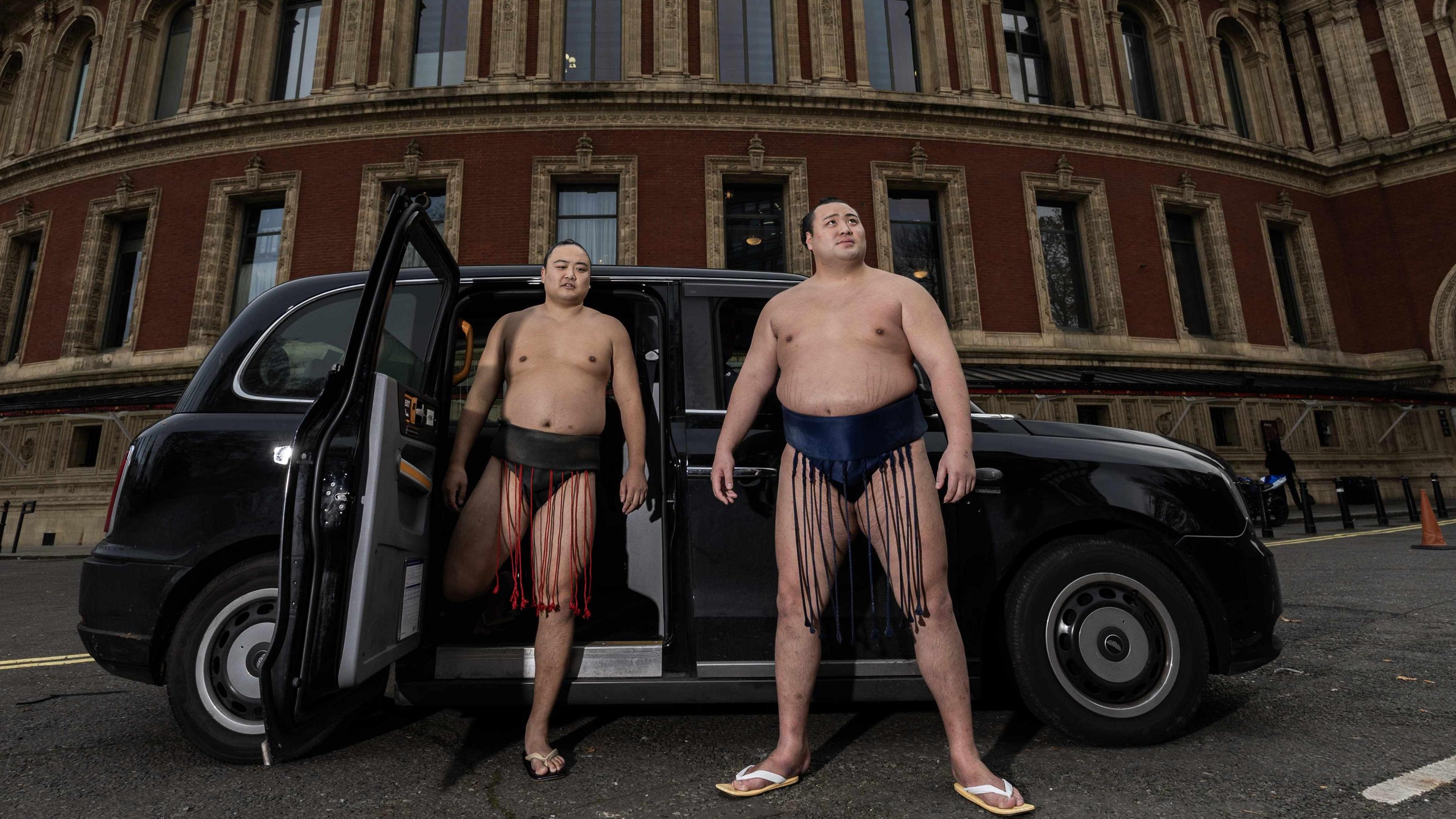
The event next October will be the first time in 20 years the Tournament has been held outside Japan
It is "very unusual and rare" for the tournament to be held outside Japan, said Donagh Collins, chief executive of promoter Askonas Holt.
The event next October will be the first time in 20 years the Tournament has been held outside Japan.
There are six Tournaments each year held every two months so it took a while to be able to find a space in the Royal Albert Hall's diary which matched up with the rhythm of when the Tournament is held, according to the venue's chief executive, James Ainscough.
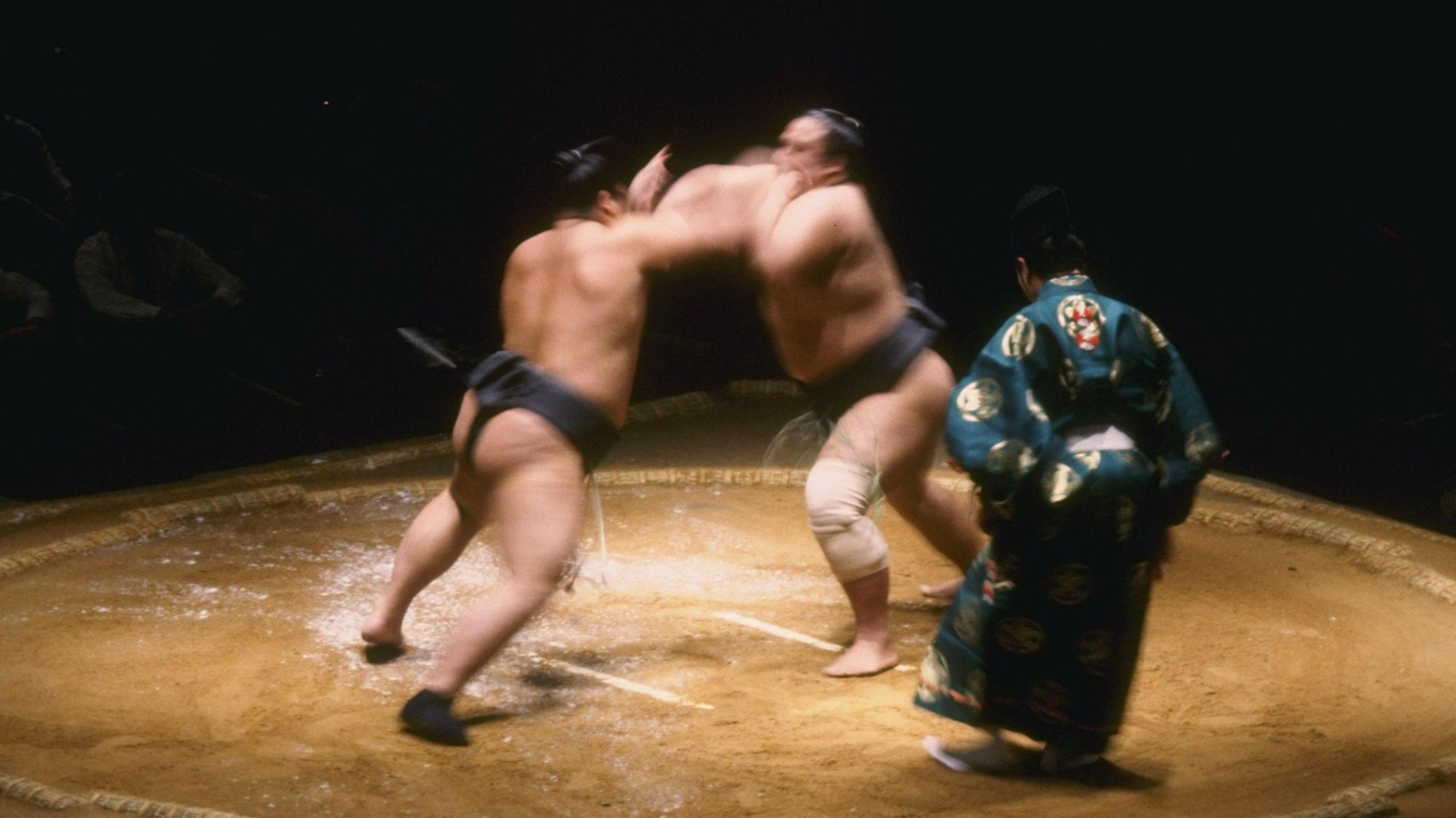
The Royal Albert Hall previously held the Tournament in 1991
Japan Sumo Association chairman Hakkaku Rijicho, a former Yokozuna Hokutoumi, external, (Hokutoumi is the ring name), said: “I will be making every effort to convey to the people of London the appeal of Sumo, an ancient traditional Japanese culture, and to ensure that everyone enjoys the event to their heart’s content."
Hakkaku, who won the 1991 tournament, added: "I look forward to meeting many of you there.”
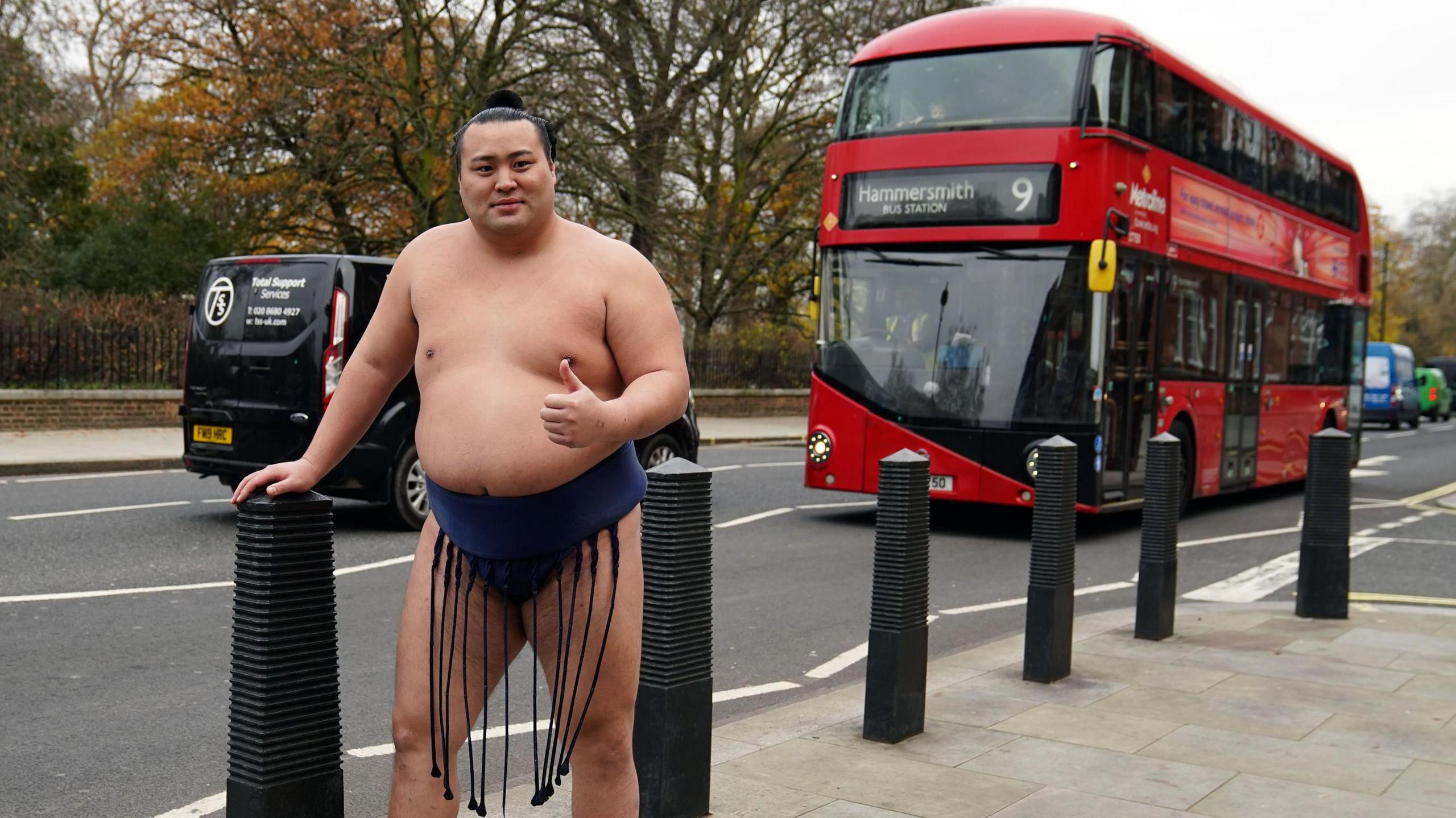
The clothing is called mawashi, a nine metres (30 feet) piece of silk wrestlers wrap themselves into
Hiroshi Suzuki, the Japanese ambassador to the UK, described the sport as a "synthesis of Japanese culture and tradition" which was growing an international following.
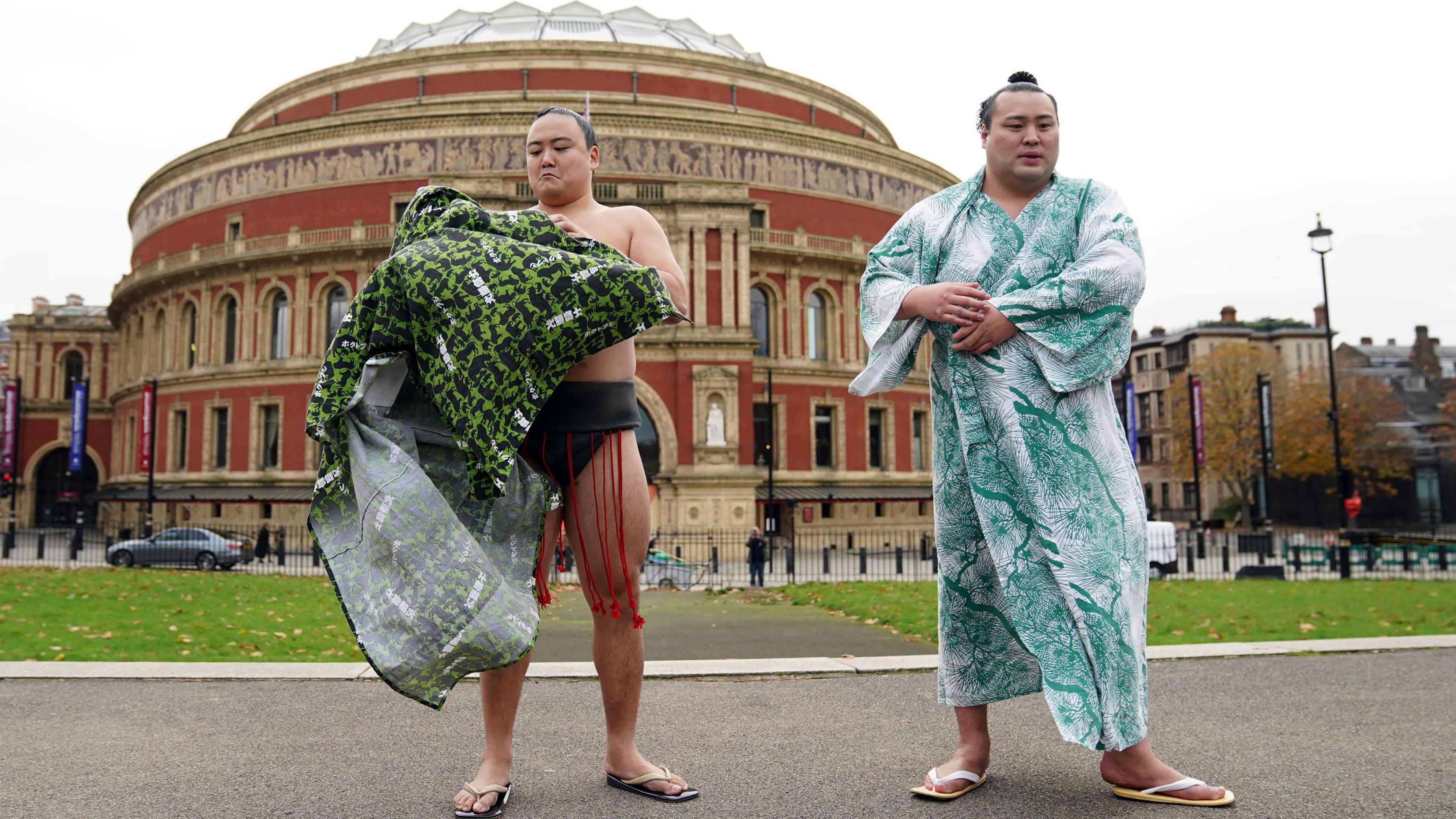
Sumo wrestlers Fukutsuumi Akira (left) and Kitanowaka Daisuke (right) attended the launch of the Tournament dressed in traditional yukata
Mr Ainscough said the last tournament held in London 33 years ago "captured the imagination of the entire country".
"I’m really excited to see the impact sumo can have on hearts and minds," he added.
Pressed on whether there will be affordable tickets he told BBC London there were going to be a "whole range of tickets".
"We're also hoping for great TV coverage so even if you can't make it to London you can watch it," he added.
Listen to the best of BBC Radio London on Sounds and follow BBC London on Facebook, external, X, external and Instagram, external. Send your story ideas to hello.bbclondon@bbc.co.uk, external
- Published14 May 2024
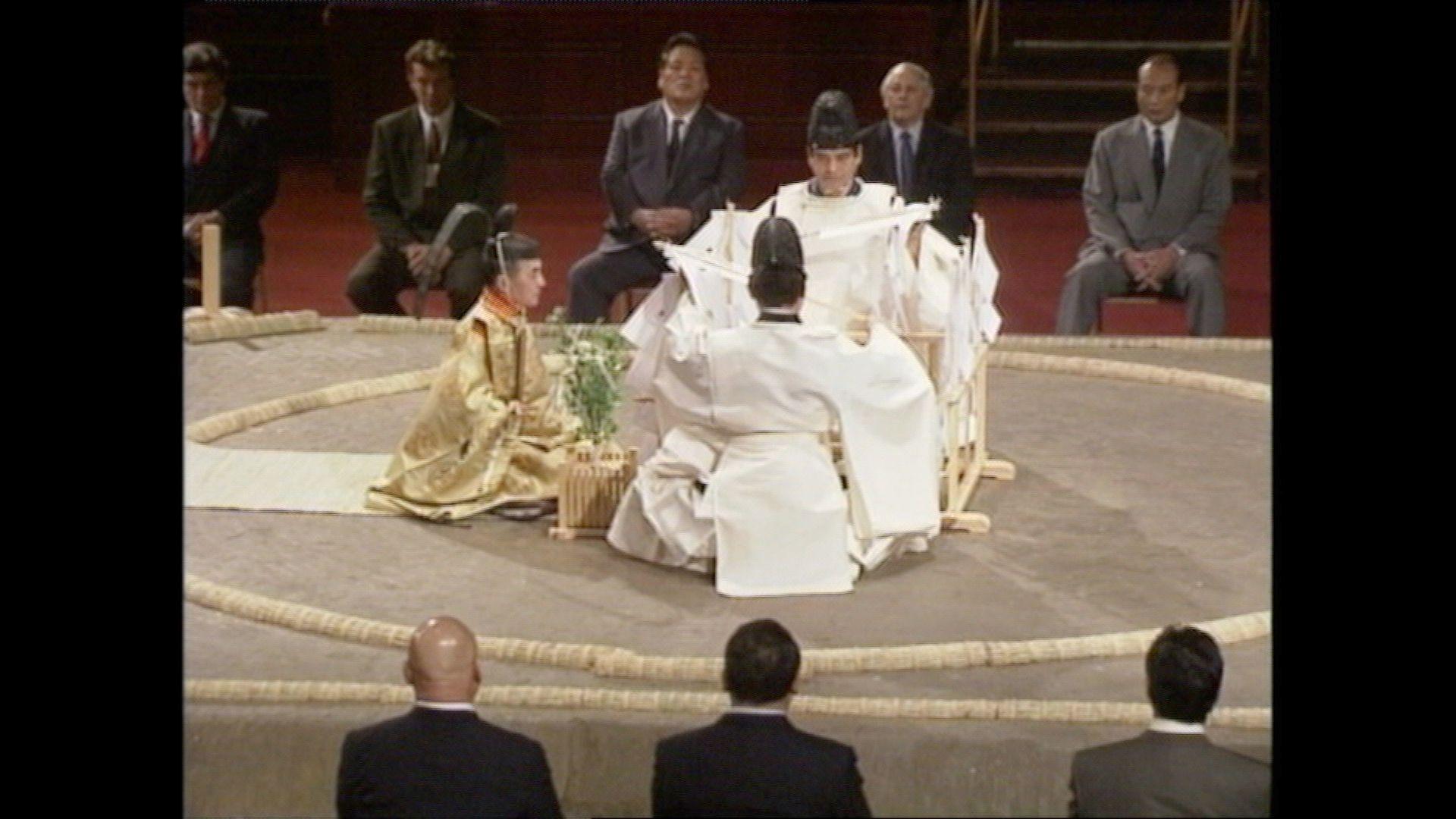
- Attribution
- Published4 October 2023
